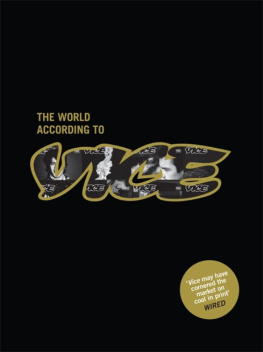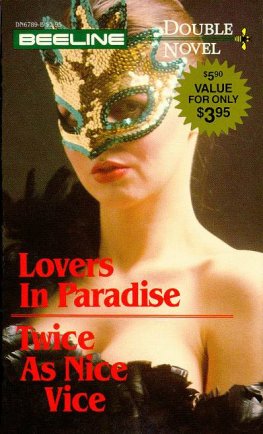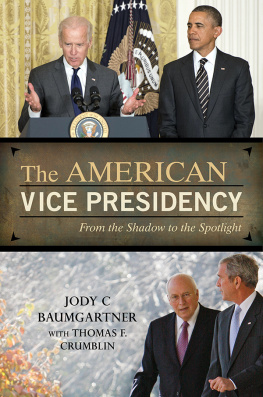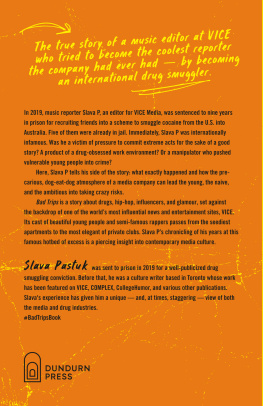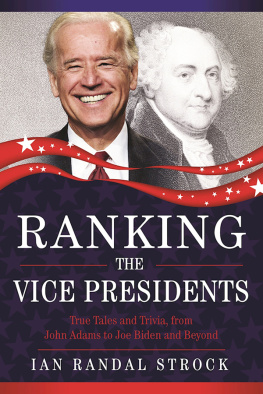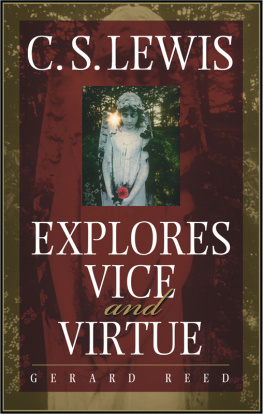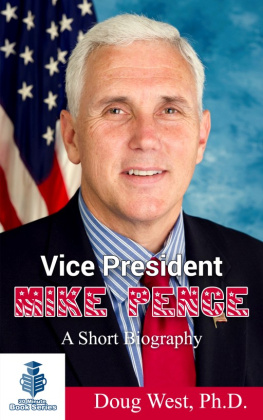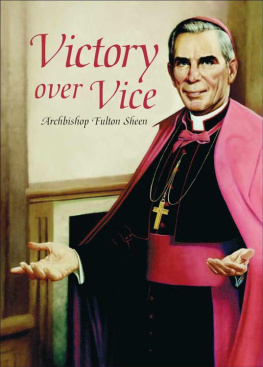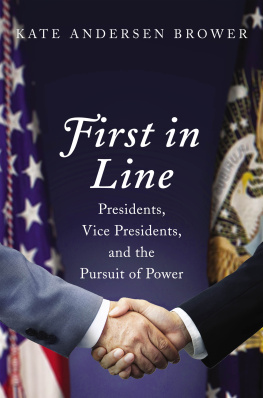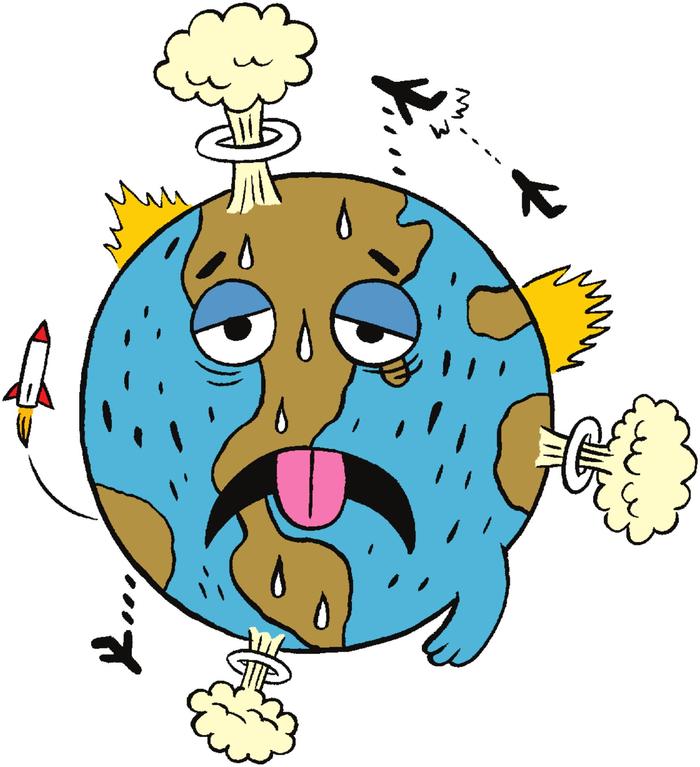THIS IS A CONVERSATION BETWEEN ANDY CAPPER, BRITISH EDITOR OF VICE, AND JESSE PEARSON, THE EDITOR IN CHIEF OF VICE GLOBAL, WHO IS AMERICAN.
Andy Capper: Jesse, we have to do a thing where we talk about the last eight years of Vice magazine being in Britain.
Jesse Pearson: Why?
AC: Were doing a book with Canongate thats apparently going to open us up to a whole new audience. Im very excited about that.
JP: Hmm.
AC: Please?
JP: What is it that you want to say?
AC: Well, this book is for a Brit audience and we are here to talk about yours and my experience of how the British Vice started and how the special relationship worked and survived against the ridiculous odds; and I guess how the start of British Vice and then Vice EU coincided with the start of both our careers as editors here.
JP: So this is for the kind of audience that likes Ant and Dec
AC: Yes, that is correct. You seem to have your finger on the pulse of Britain.
JP: I like British people. I think they have the best sense of humour in the world, apart from New York City Jewish people. Russians come third. But I think Brits are too fond of making lists and doing weird awards things. Like the whole Christmas number one thingto me thats insane.
AC: You should have been there when it was East 17 vs Oasis. It was one of the cultural highpoints of the last 100 years of Britain.
JP: I also like the way British people get weepy and have sing-alongs while drunk, because I do that too and I also like their attitude with regards to partying, which is pretty much Friday from 5 PM until Sunday, or rather Monday, at 4 AM, going for it.
AC: Its more like Thursday from noon. One of the first stories we did together was when I was sent to Paris for the weekend to meet the sapeurs. I wrote the article and people seemed to like it but I was not actually sure if I found any sapeurs.
JP: There was also a grime article pretty much every month.
AC: We were the only people who wrote about it in such detail aside from Grime Monthly or whatever. We did those articles cos that scene at the time was like a young, black version of Eastenders, with all the gossip and chit-chat and incidents, which were turned from people quarrelling violently at pirate radio stations to shootings, stabbings and jail sentences. And now, some of those kids from that scene are Britains biggest pop starsDizzee, Tinchy, Wiley. Its nuts.
Lets give people some more history. What was Vice like eight years ago, before the British office opened and you and I became the editors?
JP: People liked it in the main because of the DOs & DONTs, I mean, it was great because it was like nothing else. The focus of the magazine was more on retardation in general, but thats what attracted me to it.
AC: It started as a reaction against the tail end of the 90s, which was a time when a lot of people were being overly pious about things, I feel.
JP: It was the funniest magazine around. And, yes, coming out of the liberal arts education prison I had been in for five years before, it was very refreshing. My college was one big, long take-back-the-night rally. I had to constantly be getting talked to about how insensitive I was, so Vice appealed to me for sure.
AC: Those sensitive types are like the self-proclaimed socialists whove never had to be poor or work a hard job but have rehearsed polemics about workers rights. Not that workers shouldnt have rights, but essentially the people who yell about them the loudest generally have no idea what the fuck they are talking about.
JP: Its easy to say you dig blue-collar people if your family is not blue-collar. But I have to admit I mostly read the D&Ds and the guides to funny shit. I was into more sophisticated things such as i-D and Sleazenation, you know, timeless things like that.
AC: Where I grew up in Southport, which borders on being a hick town, I honestly didnt know what i-D was about. As a kid, I didnt understand the concept of fashion magazine.
JP: Oh, well, re: i-D et al, to be honest, I started looking at them for tits because there was no alt porn back then. Those were the best places to see the nude boobs of the sorts of girls I liked.
AC: We shouldnt talk about other people, its a bad vibe. Looking back over the glorious career youve had as the main editor, and from which period most of this book comes from, which would you say were your favourite issues?
JP: My second issue was the Special Issue. It was the first time the majority of an issue was given over to one group of people.
AC: What was the thinking behind thatgiving over the issue to a small group of people rather than check out the world through our gay magazine lens like a lot of other people do?
JP: It started to become clear to me that to do themes like we were doing, we needed to go all the way and get every single page of the magazine in line with the theme, and so we had a run of issues where every single page was dedicated to one theme.
AC: Thats kind of where that immersionism journalism started that I always talk about when other people interview me about what Vice is. And I guess that style of journalism became our hallmark, right?
JP: Well, I have to say, we acted like we invented that and we 100 percent did not. Ever hear of a guy named George Orwell?
AC: The name rings a bell. Is that the guy who wrote The Da Vinci Code?
JP: Yes, thats correct.
AC: Yeah, we definitely didnt invent immersionism in any way at all but it became what we did.
JP: The whole thing from our perspective was to let the subjects tell as much of the story as possible. There were obvious ones like the Poverty Issue and the Mentally Ill Issue, all of which involved me going and staying with the people in the mag and you and other editors doing the same.
And then the Cops Issue came out which was a classic. For a magazine like Vice to come out with an issue all about our respect for cops was pretty good. The thing about cops, or one of the things we wanted to get across, is how insanely funny they can be, and who has better stories than cops?
Soldiers and ER doctors I guess can compete, but not many other professions.
AC: I guess VBS started out of that immersionism journalism thing. Remember when that started? It was when Spike [Jonze] said to Shane [Smith, Vice CEO], Why dont you film your articles? But lets just talk about the magazine here. Theres a whole section about VBS later in the book.
JP: Yeah, well, immersionism started to turn into a bit of a crutch for the magazine and I think its important to keep changing things up and so we stopped doing as much.
AC: We started doing longer interviews, like huge interviews with people. But that in itself was also a kind of immersionism.

